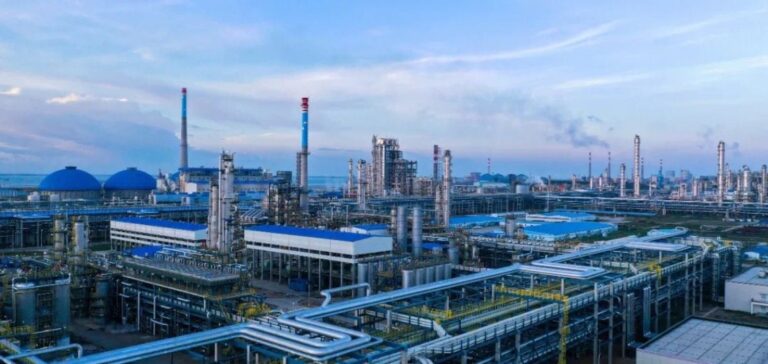Sinopec announces a 1.6% reduction in crude processing for the second half of 2024, to 5.03 million barrels per day (b/d).
This decision comes against a backdrop of slowing domestic demand for petroleum products.
The first half of the year had already seen a slight drop in crude processing, totaling 126.69 million metric tons, reflecting a trend towards continued volume reduction.
This reduction, albeit modest, could limit China’s crude imports, already down by 2.9% in the first half of 2024.
The figures show that Sinopec ‘s adjustments are in response to lower domestic consumption and the need to adapt supply to market conditions.
Changes to the production portfolio
In response to these dynamics, Sinopec is also adjusting the composition of its refined products.
Gasoline production rose by 6% to 1.51 million b/d, while kerosene output increased by 14.5% to 679,313 b/d.
Conversely, diesel production fell by 9.3% to 1.2 million b/d.
These adjustments are designed to respond more effectively to fluctuating demand on the domestic market.
Sales of refined products fell by 4.7% to 56.96 million metric tons in the first half, reflecting the more marked economic slowdown.
Faced with this situation, Sinopec closed or reduced the activity of certain petrochemical production units deemed less profitable.
Targeted investment and maintaining production
Despite these adjustments, Sinopec continues to maintain its crude oil and natural gas production targets for 2024.
Crude oil production remained stable in the first half, reaching 772,143 b/d, while natural gas production rose by 6% to 700.57 billion cubic feet.
Investment in exploration and production continues, with a budget of 77.8 billion yuan for the year, of which 33.79 billion yuan has already been spent.
This budget allocation reflects a strategy aimed at securing production and boosting capacity, while taking account of fluctuations in the energy market.
Prudent investment management enables Sinopec to adapt to market trends while maintaining stable production.






















